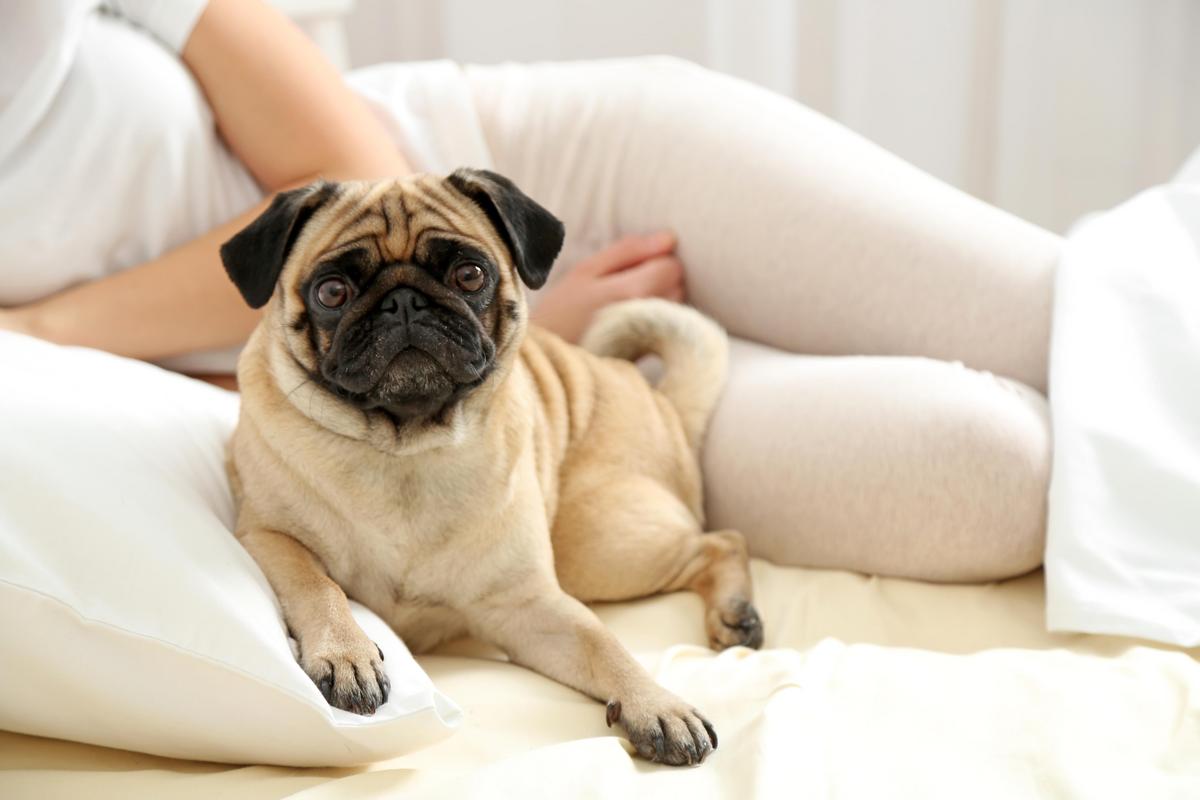How to Effectively Help Manage Your Dog’s Weight
#1 Canine Cuisine: How much food does a dog need to maintain a healthy weight?
Our canine furry companions come in all shapes and sizes. From the small breed slipper-hunters to the larger sun-basking garden dwellers, different dogs have different needs when it comes to the right amount of food. Some food-motivated pooches will have you believe that there’s no limit to their appetite. But, as tempting as giving in to their sad puppy-dog eyes is, too much of a good thing can actually be bad for their health.
How do you know your best friend is getting the right amount of nutrients to keep their tails wagging happily for years to come?
Age is not just a number
Your dog’s nutritional needs will change as they grow. Puppies need a lot more energy than adult dogs all that chewing, playing and growing use energy, after all. As puppies are still developing, they need a lot more protein to build muscles and bones than a fully grown adult dog would. But, as cute as a chonky tiny pup might look, it’s not advisable to overfeed your puppy. Being overweight not only leads to various health issues when your canine is older, it can drastically impact their development. Joint and bone issues are just some of the challenges overweight furballs face, along with shorter lifespans.
While it might be tempting to give your puppy all the treats their little heart desires, it’s best to feed them a balanced meal that’ll help them live a long, healthy life. Canine Cuisine for Puppies has been specially developed by pet nutritionists to keep your little bestie in top form for years to come.
What about those older pups?
We’d all like to think that our best friends will never get old. But, even the spriteliest doggo will start sporting a grey hair or two. Dogs over seven years old are generally considered senior. As your dog ages, their metabolism will change, too. This could mean that they may need more fat in their diet than previously to help them maintain that perfect older-pup weight. If your otherwise healthy older dog is losing weight, they may need a little extra food in their food bowl.

Working dog?
We know that dogs come in different shapes, sizes and breeds all of which will impact how much food your pooch needs. More active breeds, or working dogs, need more calories to fuel their canine exploits. A busy beagle or herding collie will use more energy than a couch-potato pug. When determining how much food Fido needs, take into account your dog’s activity levels. Active dogs will burn those calories off faster than Usain Bolt breaks world records.
No fat-shaming here
Some dogs are food-motivated and will do almost anything for a tasty morsel. Other pooches, like a rescue pup, for example, might guard their food. Some act like they’re competing in a professional eating contest. Whatever the reason, some pups might be a little on the heavier side. So, how do you know if your dog is overweight?
Well, regardless of the breed, you should be able to feel all of your dog’s ribs without a thick layer of fat over them. Their chest should be wider than their abdomen. If your furry bestie doesn’t have a waist and you can’t tell where their chest ends and stomach begins, they’re probably overweight.
Being overweight can cause a host of health issues in dogs, upping the risk of them developing a serious illness like cancer or diabetes.

If you want to help your poochy best bud get into better shape, consider well-balanced, nutritional food. You still want your doggo to get the right amount of vitamins and minerals, without overdoing the calories. Canine Cuisine Weight Management has 20% less fat*, helping you manage your pup’s calorie intake without compromising on their health.
While things like your dog’s age, their breed or activity levels will impact how much food you feed them, the quality of the food itself is an important factor. Your doggo will chow down more food with less nutrients than a healthier, balanced meal. To ensure your hound is happy for years to come, give them food that has been specially made. A scientifically balanced food will give your best friend the vitamins and minerals they need to keep their eyes bright, noses wet, and tails wagging. If you’re unsure of the diet your pup needs, chat to your dog’s vet for more advice.